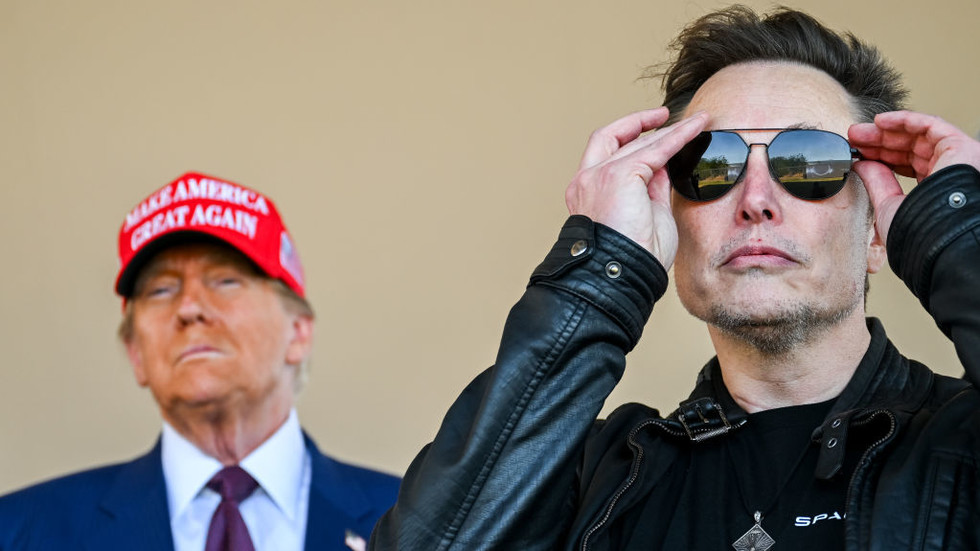Elon Musk, recognized as the world’s richest individual, has emerged as an influential figure in the inner circle of the US president-elect, Donald Trump. Recent reports suggest that Musk has devoted an astounding $260 million to aid Trump’s re-election efforts. Multiple media sources reference filings submitted to the Federal Election Commission which reveal Musk’s extensive financial contribution, solidifying his position not just as a prominent figure in the business sector but also as a significant player in the political arena. His financial backing reportedly includes a staggering $238 million allocated to a political action committee (PAC) he established in 2023, titled America PAC, along with substantial sums directed to other Republican-affiliated groups such as RBG PAC and MAHA Alliance. Furthermore, Musk’s expenditure on political campaigns prior to the election reached about $232 million, followed by an additional $45 million raised post-election, bringing his overall political investment to a notable $277 million.
In the wake of Trump’s electoral success, Musk’s influence has been recognized formally as he has been appointed as an adviser on government efficiency. This newly created role aligns with the establishment of a department dubbed the Department of Government Efficiency (DOGE), with a focus on curtailing governmental expenditures. Musk’s ambitions are grand, detailing plans to audit the entire US government, with the goal of achieving a remarkable reduction in spending amounting to $2 trillion. This initiative illustrates the intersection of Musk’s entrepreneurial ethos with governmental reform, suggesting a blend of private sector efficiency strategies being applied to public governance.
Moreover, Musk’s growing prominence within conservative circles has led to him being labeled as the “co-president of the United States” by some media outlets and political commentators. This moniker reflects his substantial impact on the current political landscape and his close association with Trump. Comparisons have also been drawn between Musk and George Soros, a well-known liberal donor, with Musk being characterized as a figure on the right with significant financial clout. Such characterization emphasizes the shifting dynamics in political funding and influence, showcasing Musk as a key player shaping the Republican narrative and agenda moving forward.
Financially, Musk has witnessed a notable uptick in the valuation of his electric vehicle company, Tesla, which recently saw its shares surge by 80% within a month’s timeframe. This rise can be partially attributed to the favorable regulatory environment anticipated under a Trump administration, particularly concerning self-driving vehicle legislation. With Musk’s dual role as a business leader and political influencer, the intertwining of his business interests with governmental policies ignites discussions about the implications of such relationships on market dynamics and regulatory frameworks.
As the implications of Musk’s political engagement unfold, his status as both the wealthiest individual in the world—boasting a staggering net worth of $362 billion as reported by the Bloomberg Billionaires Index—highlights a significant shift in the paradigms of political donations and influence. The massive scale of Musk’s political contributions indicates a broader trend where influential business figures not only participate in, but actively drive political dialogue and policy through financial means. This evolution raises critical questions regarding the role that the ultra-wealthy play in democratic processes and how their involvement can reshape political landscapes.
In summary, Elon Musk’s substantial political contributions and recent appointment by Donald Trump illustrate a new era where business magnates wield considerable influence over government policy and political direction. As he seeks to implement reforms aimed at enhancing governmental efficiency, his actions may catalyze significant shifts not only in public spending but also within the broader political framework. The intersections of Musk’s financial interests, political affiliations, and business strategies underscore a salient trend in modern politics, raising essential discussions about the nature of influence, governance, and the interplay between wealth and public policy in the United States. As we navigate through these developments, it becomes imperative to analyze the long-term ramifications of such alliances on democracy, regulatory practices, and economic landscapes.

